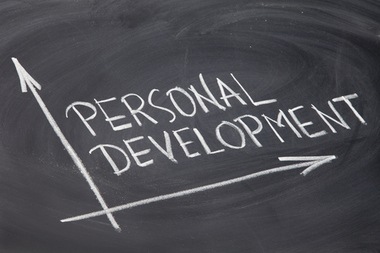It’s likely not out of boredom — there are hundreds of Facebook games and “failblogs” for that. No — you’re here to improve yourself or your life in some way. That’s what great personal development blogs are all about, right? But they sure can get overwhelming, can’t they? This is the age of information. Everywhere you click, there are hundreds of articles screaming at you : or… The charming headlines and promising content lure you in. And before you know it, you’ve got 10 tabs open and are skimming through each one, hardly pausing before you click to the next. Is this an effective way to digest this content? I don’t think so. Think of it as swallowing your food whole. So how can we ditch these bad habits and really get the most out of personal development posts?
1. Determine what it is that you want to develop.
Are you having productivity issues? (Note: Then you may want to skip the personal development posts and just get to work!) Is writer’s block keeping you from putting words on the page? Having problems on knowing how to structure your day? Knowing what you’re looking for before you dive in helps you to stay focused and ignore those screaming headlines that have nothing to do with your cause.
2. Set aside time.
Do you surf personal development sites haphazardly? Maybe you’re in the middle of working, get stuck, and so off you go to your favorite site. (I’m guilty of that one from time to time…) I think we often turn to personal development posts when we’re avoiding our work. But instead of using them as a tool for procrastination, we can actually use them as they are intended — to help us grow. Setting aside a designated time keeps it from leaking into your work time, and ensures that you’re focused on what you’re looking for.
3. Put on the blinders.
Those headlines can be so tempting, I know. They’re supposed to be. Their aim is to draw your attention. But if you’re searching for ways to become an early riser and you’re ending up on a post titled “Top 5 Ways to Keep Your Toddler Safe” and you don’t even have kids…then you know you have a problem. When you’re focusing on that one thing you want to develop, ignore the headlines that you know won’t serve your quest. Bookmark them for later if you want – I know sometimes it’s entertaining to just click through random posts, but look at the previous tip for that. You don’t have to give it up completely, but while you’re actually trying to improve some area of your life, focus is key.
4. Read the articles thoroughly.
With so many great headlines, it’s tempting to open a bunch and skim through them. But this won’t help you out much, and I bet you don’t retain the information (I know I don’t). Having a focus in mind definitely helps with this step, and it seems easier to soak up the information. Read each article all the way through — skimming defeats their purpose.
5. Ask yourself: “What did I learn?”
After you read a post, pause a moment to reflect. Did you learn something? Was it what you set out looking for? Do you need to keep looking? Then take it from there.
6. Implement.
After reflecting, if you feel you’ve found what you’re looking for…stop looking. That’s the tough part, because you know there’s always more out there. But if you want to use what you’ve learned and actually grow, you’ll have to simply stop looking. Close the browser, use your reflection and take action. How can you use what you just read? While it is very easy to get lost in the sea of personal development, don’t do it. While it’s true that there are many fantastic posts with the potential to improve your life – they are only good for you if you use what you read and take the action to make it happen. The idea is that they are should help you develop, and not envelop you in the process. (Photo credit: Personal Development flow via Shutterstock)
